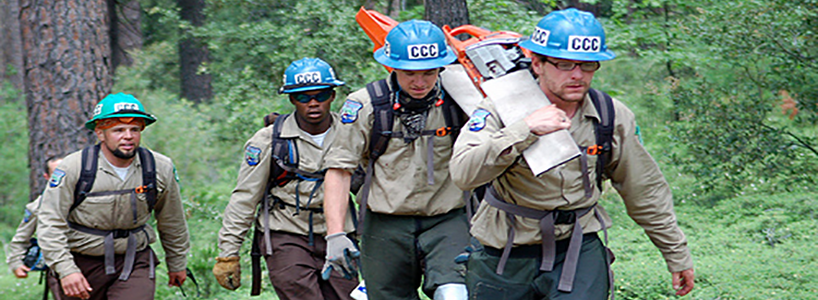The skills necessary to work in the woodlands and parks match up nicely with many of the skills veterans have from their service in the military. For instance, one of the required skills is “ … stamina to traverse wooded areas carrying equipment”. Doesn’t that sound like carrying a pack while on patrol?
Other needed skills
Foresters also need the skills of:
- knowing how to communicate
- thinking critically
- problem solving
Communicate
Depending on your position, you may be required to make presentations and write reports requiring both good written communication skills. And whether leading a team or being a member of one, being able to effectively communicate verbally with team members is always a requirement.
Thinking Critically
Military training to a large extent takes personal bias and emotion out of the decision-making process. Instead, a course of action is chosen based on known fact, assumptions, reasoning and evidence as part of a process to find the best solution to an existing problem.
Problem Solving
Because some jobs within forestry can be dangerous, especially if you are in wildland fire and suppression, being able to solve problems fast can mean the difference between life and death. For veterans of Iraq and Afghanistan, doesn’t this sound familiar while either out on patrol or working at a Forward Operating Base with mortars coming in?
Being a Forester
The job of a forester involves working at managing and conserving forested land. Jobs are usually located either at the state or federal level, although some opportunities also exist at the local and private sector.
As far as education, usually at least a bachelor’s degree in forestry from any of the 50 programs accredited by the Society of American Foresters is required at this level. Other considered degree fields may include, environmental science, rangeland management and agricultural science.
Foresters at the management level are required to create and manage budgets, create plans for forestry projects within their span of control and supervise forest and conservation technicians and workers to ensure compliance with current government policies, regulations and directives. Supervisory positions may require a master’s degree in forestry or a related field, such as project management.
Job Outlook
According to the Bureau of Labor Statistics (BLS), forestry jobs are slated to grow by 7% out through 2024. However, another 15,900 jobs will need to be filled from workers either retiring or leaving positions for other reasons. In total, growth and replacement equates to around 39,300 jobs between now and 2024. Forestry work pays well too with the median salary at $58,230.
If you like working outdoors, and don’t mind working in all kinds of weather extremes, and want to help to improve the environment, a job in forestry may be your key to a successful and rewarding career.




